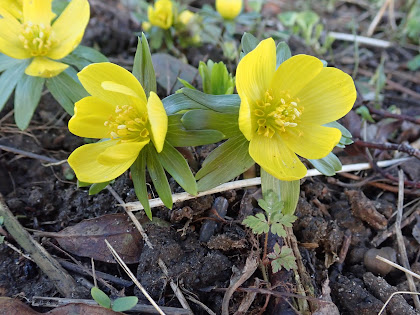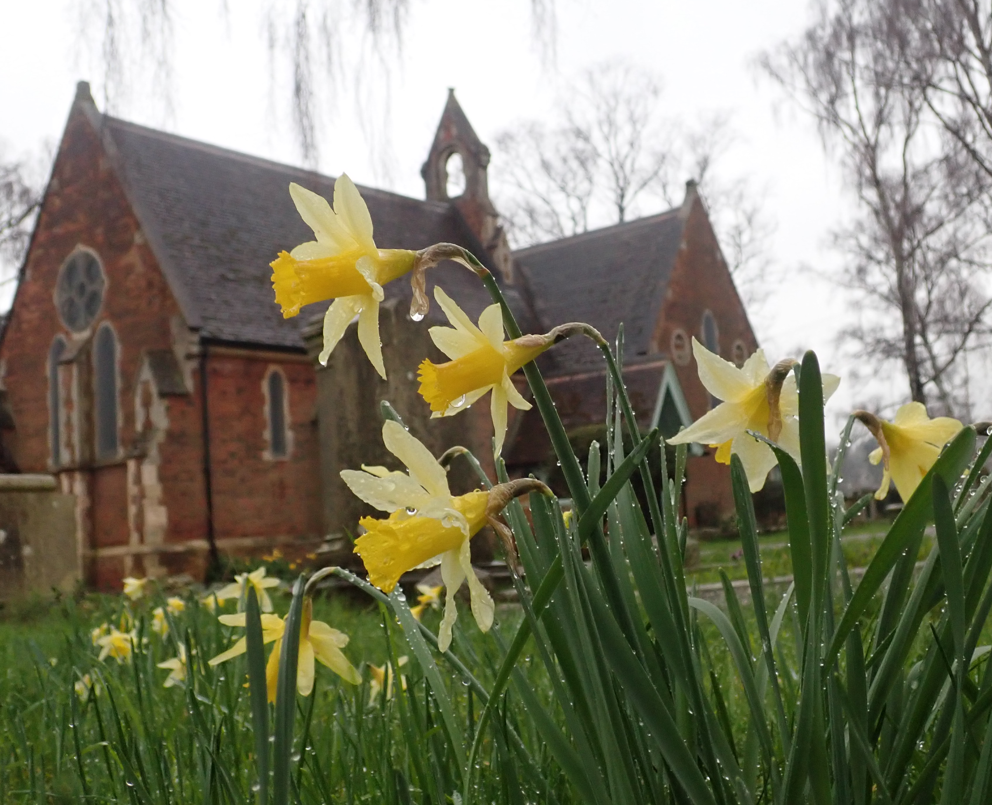Hitchin Cemetery Jan-Mar 2024
Hitchin Cemetery Jan-Mar 2024
The generally mild winter weather meant that the early spring flowers got off to a flying start, such as these lovely bright yellow Winter Aconites.
A few wildlife sightings were made which would not have happened at all in frostier weather: several Earth Ball fungi (I think) were growing, which eject spores from a little hole on top when they are hit by raindrops, and a strangely flat, oval insect, an Eared Leafhopper was tempted out in to plain view on a Birch trunk whereas it would normally be tucked away out of sight.
One of the winter activities of the Cemetery Friends group was finding use for the compost from our extensive heap. The photo below shows John taking a breather from loading barrows which, with much communal effort, were dispatched to all corners of the cemetery. As a result various graves have now had broken concrete replaced with a good growing medium and we will see what plants we can introduce to add interest. Incidentally if anyone has spare plants you think might be suitable for the cemetery maybe you could leave them by the compost area (north east corner) and we'll know what they're for.
Another winter activity, which the Friends Group have to complete before the 1st of March, because of bird's nesting season, is trimming the many bushes in the older part of the cemetery. We have performed some radical pruning of a couple of Box bushes that have previously been badly damaged by the Box Tree Moth. We have observed that after pruning the vigorous new growth which then appears is healthier and more resistant the moths, at least for a time.
Spring obviously brings ever more flowers in to bloom - there were native Daffodils with their pale petals and darker trumpets growing in the grass near the chapel. These Daffodils are a reminder of the late Paul Clark as one of his last tasks as a councillor was to come and support the scouts as they planted the bulbs. Other flowers were seen providing important food for the occasional early-flying Bumble Bee but we have also noticed that what had been magnificent drifts of thousands of Crocuses seem to be losing a bit of their glory, not helped by the squirrels who seem to have a taste for them.














Comments
Post a Comment